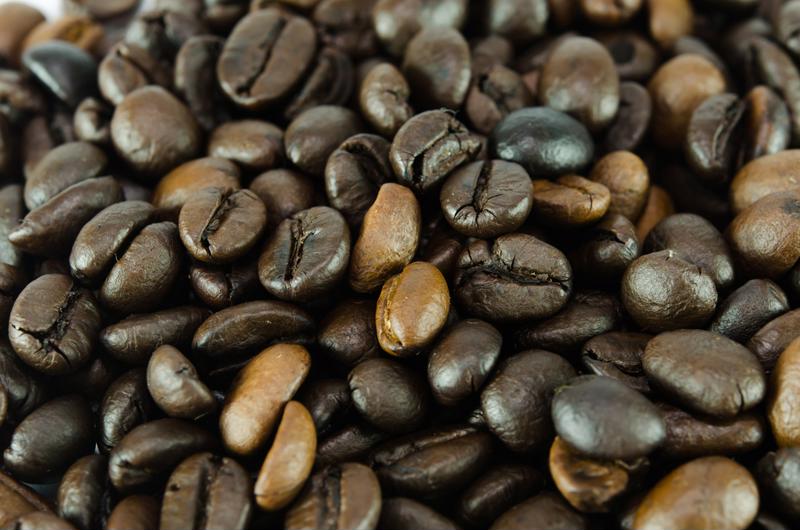
Caffeine junkies and coffee producers alike were given cause for concern recently, when a scientific study concluded that 60 percent of wild coffee species are currently at risk of extinction due to climate change.
Included among the lengthy list of endangered species was Arabica, one of the world's most commonly cultivated species, and the preferred bean of global coffee chain Starbucks.
To help mitigate the potential climate-change-created coffee crisis, many major industry players have pledged to adopt more sustainable procurement practices. However, few have demonstrated their commitment quite as conspicuously as Starbucks, which recently opened an experiential "coffee sanctuary" in Bali, Indonesia, which demonstrates to customers the "seed-to-cup" supply chain journey of the Arabica bean.
New Starbucks coffee shop largest in Southeast Asia
Located in Bali's premium retail district on Sunset Road, the new Starbucks Dewata Coffee Sanctuary is more than 20,000 square feet, making it the largest Starbucks destination in Southeast Asia, according to a press release announcing the new venture.The store spotlights the supply chain role of Indonesia, the world's fourth largest Arabica coffee growing region and the country responsible for Starbucks' popular single-origin coffee from Sumatra, which has been a staple of the brand since it first began in Seattle in 1971.
"We began sourcing Indonesian coffees more than four decades ago and have always been struck by the sense of community and care for the coffee journey at every step," Starbucks CEO Kevin Johnson said in a statement. "The Starbucks Dewata Coffee Sanctuary amplifies our passion for the coffee journey, our ongoing commitment to Indonesia's rich coffee culture, and our tireless pursuit of fostering moments of connection between our partners and customers.
Visitors to the one-of-a-kind Starbucks location will receive a unique demonstration of coffee sourcing practices, which begins the moment they enter through an Arabica coffee farm. There, they will be greeted at a concierge reception and guided through the working, 1,000 square foot coffee tree farm, which recreates the size of the average Indonesian farm. Guests can continue their "sensory coffee journey" through contemporary Balinese landscaping, which includes coffee plants and a de-pulping station. Individuals can even experience what it is like to wash, dry and rake green coffee beans during harvest season.

And of course, there is an area where customers can pay to enjoy the finished product. The Starbucks Reserve bar gives visitors the chance to taste Starbucks Reserve small-batch coffees, as well as Dewata-exclusive handcrafted beverages, including the Lavender Latte.
"The Coffee Sanctuary marks the 10th Starbucks Reserve Bar store in Indonesia, one of 185 stores around the world, with the majority in Asia," CEO Kevin Johnson stated. "This is Starbucks at its best, and we are proud to open the doors of this unique experience in one of Southeast Asia's most dynamic markets."
Company reaffirms commitment to Sustainable Coffee Challenge
In addition to creating an elaborate, interactive experience that allows visitors to observe the coffee supply chain up close and personal, Starbucks has also reaffirmed its commitment to using its position as the world's largest buyer of Indonesian Arabica coffee to work with farmers to ethically and sustainably source the endangered crop.In 2015, Starbucks opened a Farmer Support Center in Berastagi, North Sumatra, one of nine such facilities worldwide conducting research to develop disease-resistant coffee varietals and make coffee the world's first sustainable agricultural product, which is the stated goal of the Sustainable Coffee Challenge.
Starbucks is not the only member of the Sustainable Coffee Challenge to showcase its commitment to sustainable coffee growing.
In November 2018, fellow Challenge partner McDonald's set up a pop-up replica farm in Chicago to provide visitors with a similar learning experience about growing coffee sustainably. According to Restaurant Business, the fast food chain recreated a South American coffee farm inside a dome on the city's crowded Michigan Avenue, inviting passers-by in for a free coffee and sustainable growth demonstration.
McDonald's has said that 84 percent of its U.S. McCafe coffee is sustainably sourced, and that the company is on track to serve 100 percent sustainably sourced coffee worldwide by 2020.
For its part, Starbucks Indonesia and the Sumatra FSC have donated over 330,000 coffee seedlings to smallholder farmers to-date, and the company intends to donate 100,000 seedlings annually in partnership with the FSC through locally driven initiatives to support coffee tree replanting.
The Starbucks Foundation has also given over $4 million dollars in the last 13 years to support farming communities and promote education, water, sanitation and health programs across Indonesia. Last year, The Foundation supported women-led community health and hygiene programs for 2,100 households in Sumatran coffee-producing villages through grants provided to Lutheran World Relief.
As Supply Chain Dive notes, such efforts by Starbucks and McDonald's create good PR for the brands, while also combating a serious threat to the coffee supply chain. Sustainability and traceability have become major areas of concern for coffee, which is a resource-intensive crop that requires massive amounts of water to grow - roughly 37 gallons of water are needed to produce a single cup of coffee or espresso.
With such a large water footprint, coffee companies must work hard to make sure that the pot doesn't run dry anytime soon.


Post A Comment:
0 comments so far,add yours